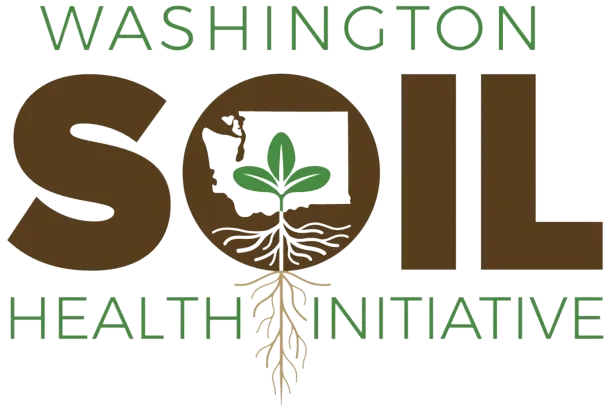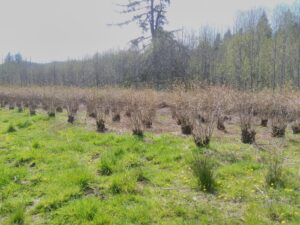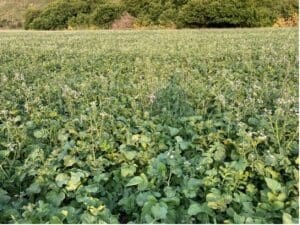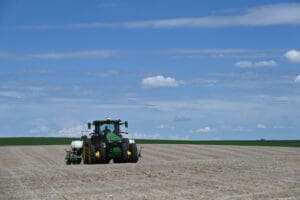Sustainable Farms and Fields
Incentiving soil health practice adoption and reducing greenhouse gases
Sustainable Farms and Fields (SFF) is a grant program that makes it easier and more affordable for farmers and ranchers to implement climate-smart practices and projects that increase carbon sequestration and reduce greenhouse gas emissions.
Through SFF, farmers and ranchers may receive free services — such as on-farm consultations, climate-smart farm plans, and other technical expertise — and financial assistance to help cover the cost of eligible projects, equipment, seeds for cover crops, and other expenses.
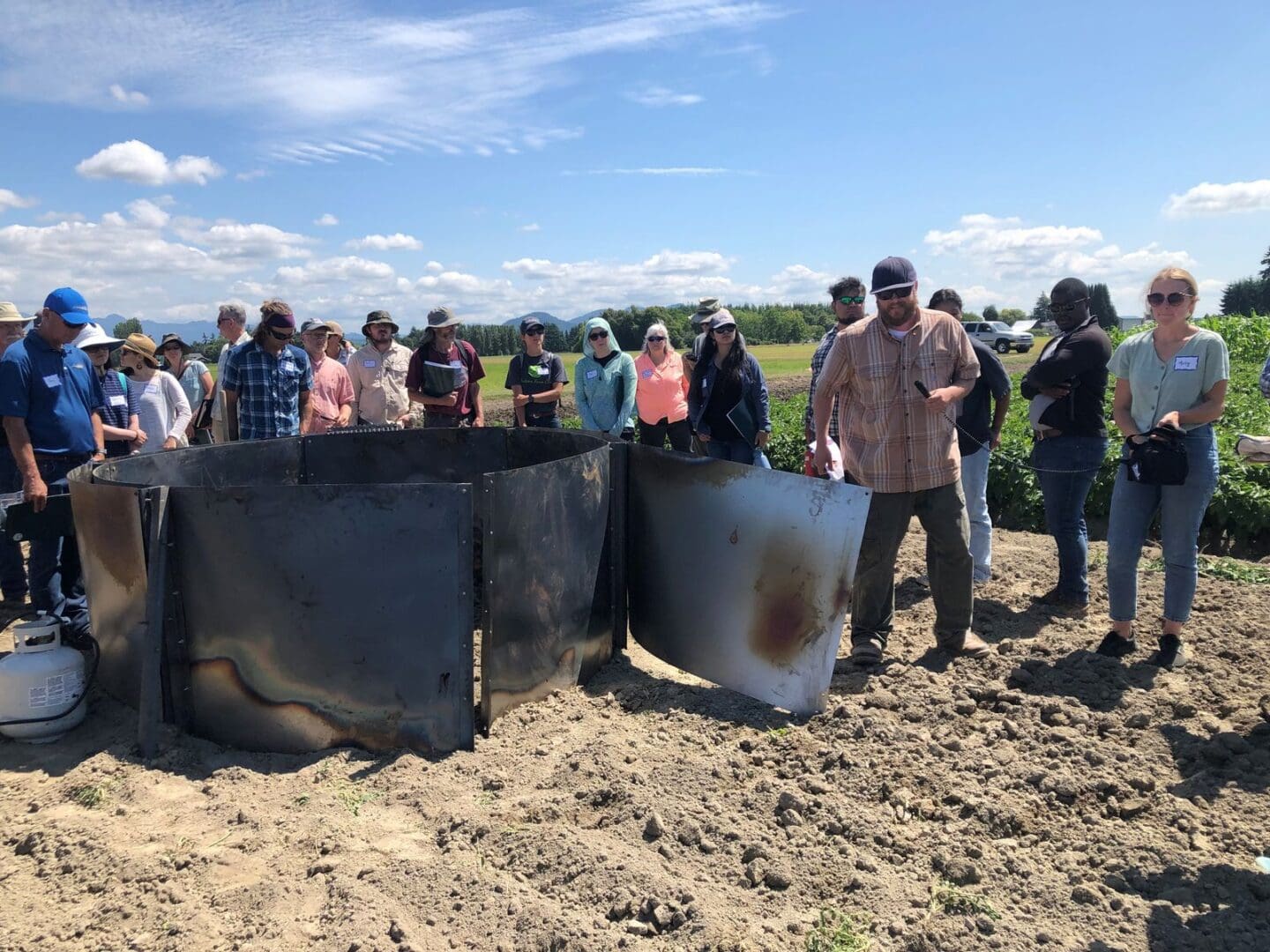
The Washington State Legislature created SFF in 2020 and provided seed funding for the Conservation Commission to design the program framework in partnership with the Washington State Department of Agriculture, Washington State University, and USDA Natural Resources Conservation Service.
Download program fact sheets in English and Spanish.
Examples of potential grant-eligible activities include:
- Providing personalized and on-site technical expertise, such as developing climate-smart farm plans.
- Sharing the cost of climate-smart practices/projects, such as planting trees/shrubs, implementing no-till/direct seed, managing manure storage and application, planting cover crops, composting/mulching, and purchasing precision agriculture equipment/technology.
- Purchasing seed, spores, animal feed, and soil amendments.
- Purchasing shared-use equipment (e.g., no-till planter) that will be made available through local entities, such as conservation districts or farm co-ops.
- Demonstration projects showcasing a practice eligible through SFF that is not commonly used in an area and must include a substantial outreach component OR demonstration projects used to gather more information about the feasibility and impact of a practice that is not yet eligible but shows promise as a climate-smart practice.
Who can apply?
SFF funding is open to conservation districts and other public entities that possess the expertise to provide technical assistance and the capacity to implement climate-smart practices. These entities include:
• Conservation districts
• State agencies
• Colleges, universities, and extension offices
• Federally recognized tribes
• Counties
• Cities, towns, and other municipalities
• Special purpose districts
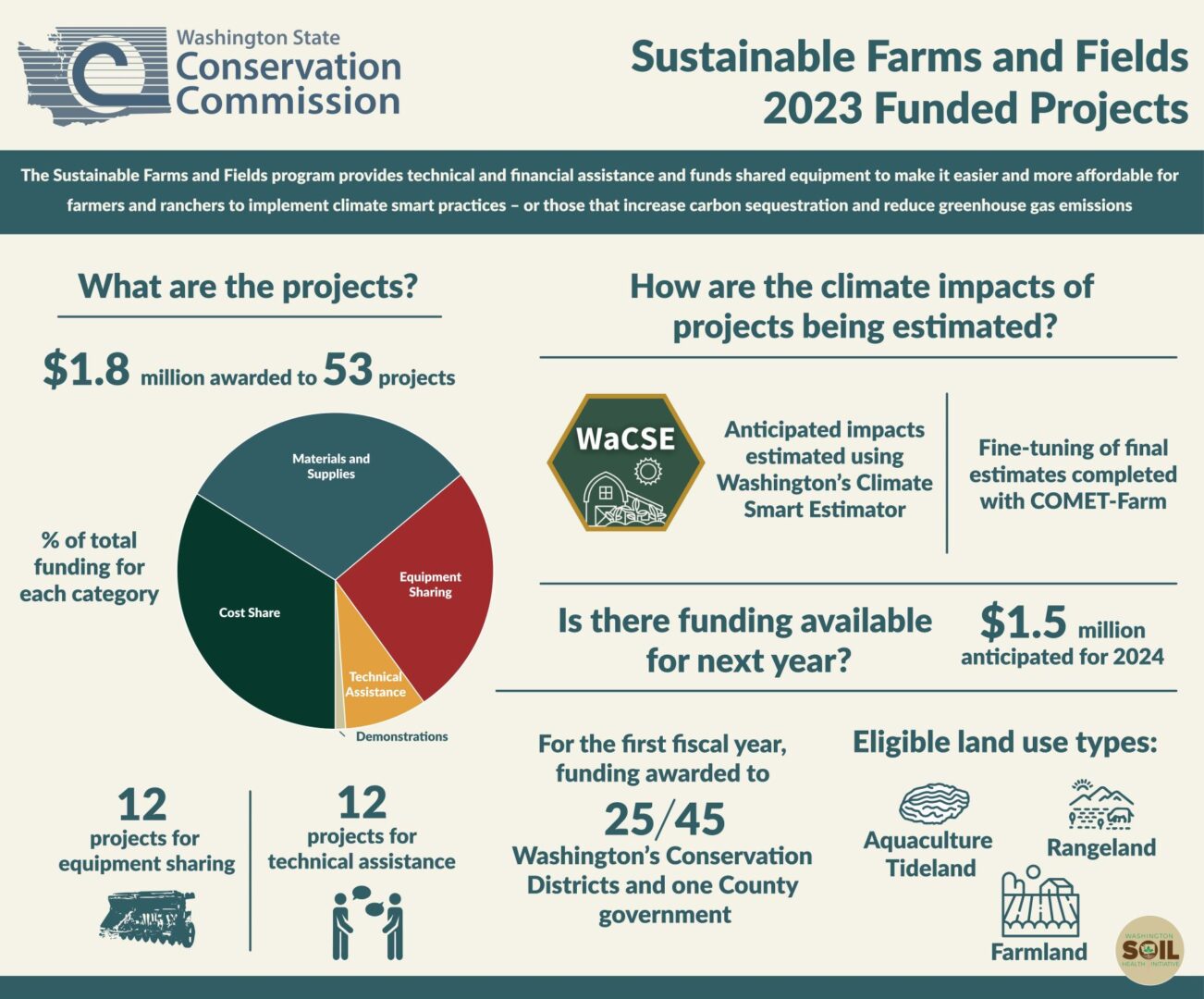
SFF funding is open to conservation districts and other public entities only. Interested producers should reach out to their CD, WSU Extension Office, or local climate-smart government program.
Articles about Sustainable Farms and Fields
Compost: Saving Soil Health, One Pile at a Time
With funding from the Sustainable Farms and Fields program, Four Elements Farm was able to improve soil health through compost applications.
Cover Cropping “Aventures” with Dad
Just like his dad, my three-and-a-half-year-old boy loves the garden and all the things we grow in it. A favorite part of my job is the opportunity to put my boots in the fields of my home area and when I get to bring my boy Jack along for an “aventure,” as he would say.
One year into Washington’s Climate Commitment Act: Impacts on Agriculture
As written, the CCA exempts agriculture from many of its rules. This includes the requirements to report GHG emissions, and to participate in the quarterly cap-and-invest auctions in which Washington businesses must purchase the right to emit GHGs. Nevertheless, agriculture is still substantially impacted by the law’s economic and environmental effects. In fact, the CCA has ushered in many benefits and challenges to Washington agriculture since its launch on January 1st, 2023.
- « Previous
- 1
- 2
- 3
- Next »

